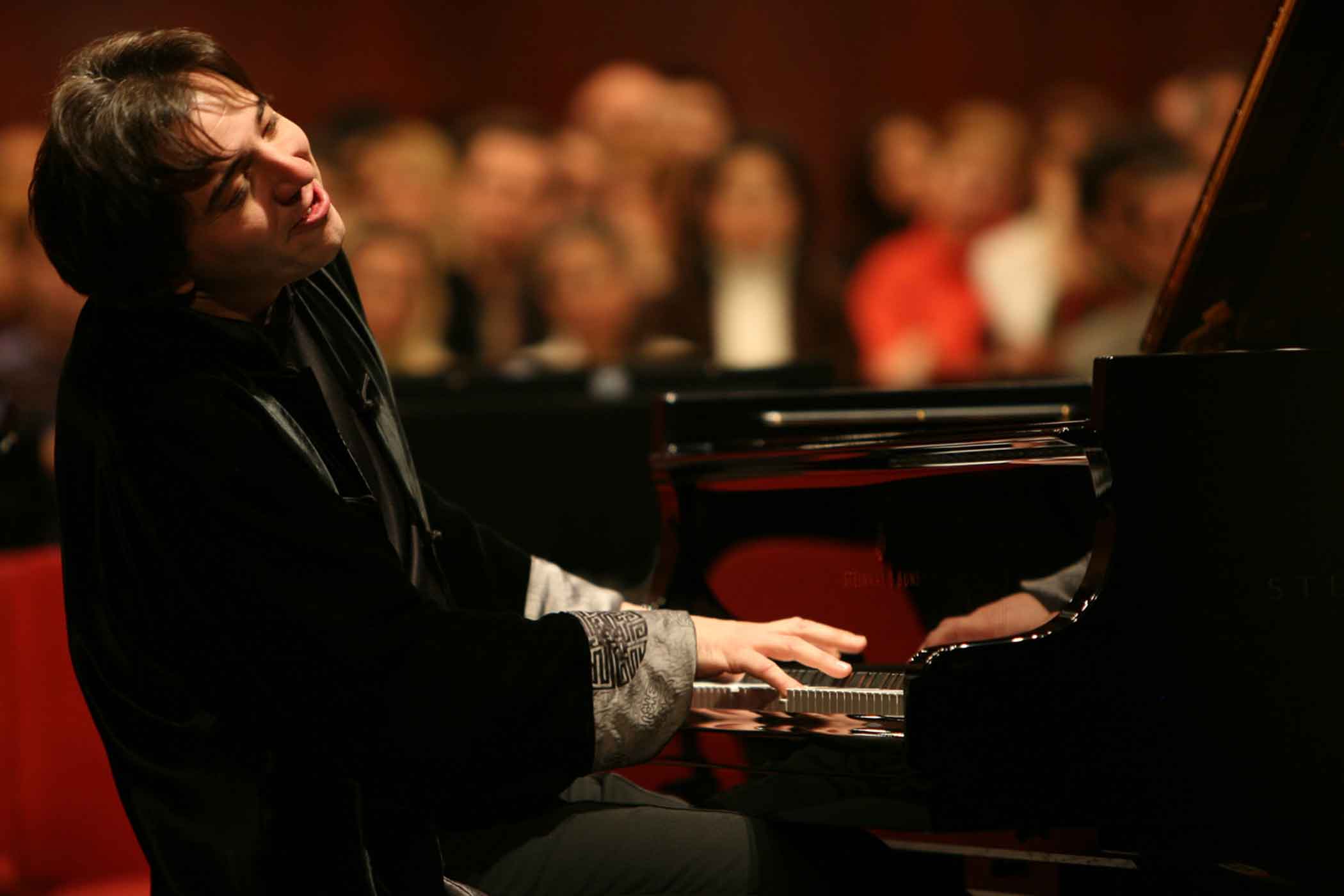
What the law says:
* Article 125(3) of the Turkish Penal Code: In case of commission of offence with defamatory intent;
a) Against a public officer,
b) Due to disclosure, change or attempt to spread religious, social, philosophical belief, opinion and convictions and to obey the orders and restriction of the one’s religion,
c) By mentioning sacred values in view of the religion with which a person is connected, the minimum limit of punishment may not be less than one year.
(4) The punishment is increased by one sixth in case of performance of defamation act openly; if the offense is committed through press and use of any one of publication organs, then the punishment is increased up to one third.
* Article 216(3): Any person who openly disrespects the religious belief of group is punished with imprisonment from six months to one year if such act causes potential risk for public peace.
* Article 24(5) of the Turkish Constitution: No one shall be allowed to exploit or abuse religion or religious feelings, or things held sacred by religion, in any manner whatsoever, for the purpose of personal or political influence, or for even partially basing the fundamental, social, economic, political, and legal order of the state on religious tenets.
* Article 26(1) of the Turkish Constitution: Everyone has the right to express and disseminate his thoughts and opinion by speech, in writing or in pictures or through other media, individually or collectively. This right includes the freedom to receive and impart information and ideas without interference from official authorities.
How the law is used:
Turkey has been a constitutionally secular country since its founding in 1923. Nevertheless, the country is overwhelmingly Islamic, with a reported 99 per cent of the population of 75,600,000 at least nominally belonging to one of its different denominations (Sunnis make up around 70 per cent, Alevis 20 per cent and Shia 3 per cent). The secularity of the Turkish state is technically similar to that of the French laïcité; the state guarantees freedom of religion, but any religion must stay out of the public sphere and not be involved in politics.
Turkey indeed used to be strictly secular and the Kemalist tradition (after the founder of the state, Mustafa Kemal Ataturk) was often accused of being too oppressive towards religion. However, the politics of Turkey are presently becoming increasingly entangled with Islam, since the conservative Muslim party The Justice and Development Party (AKP) came to power in 2002. The AKP's social politics are heavily reliant on Islamic principles. Recep Tayyip Erdogan of AKP has been Turkey’s Prime Minister since 2003. He is described as a devout Sunni, and has been hailed for his economic and democratic reforms. On the other hand, the AKP and the PM himself have often been accused of harsh treatment of critics and of undermining the secular nature of Turkey.
On April 15th, a renowned concert pianist Fazil Say was given a suspended sentence of 10 months imprisonment for insulting Islam. His conviction arose from comments he had posted on Twitter. Amongst these were satirical observations on religious practices, and a piece of poetry from the 12th century which suggests that heaven may be either a tavern or a brothel. The court found that Say had “openly denigrated religious values that have been adopted by a portion of the public”. Say’s supporters believe that his persecution was politically motivated as he has been a vocal critic of the AKP and Erdogan for years. Say is also open about his atheism, and has previously expressed concerns about Turkey’s rising Islamism. Say himself has stated he was not surprised by the charges brought on him under Erdogan who “once wanted to abolish the ballet”.
The verdict raised criticism in Turkey and abroad. The European Commission expressed concern about Turkey’s respect for freedom of expression. Turkey has for years negotiated to become a member of the European Union, so such comments will not go unnoticed by the government. Indeed, Turkey’s Minister of Culture and Tourism immediately responded to the criticism: “Obviously I don’t want anyone to be taken to court for something they have said. I am particularly against artists and cultural figures being taken to court and sentenced... The result is, in the end, a ruling of the court.” Prime Minister Erdogan has however refused to comment on Say’s case.
Turkey under Erdogan’s rule has witnessed a growing number of convictions of those critical of the government. There have however so far not been many blasphemy charges. Several secularist and nationalist military leaders, journalists and lawyers have been imprisoned for alleged connections to a planned coup. Others have been charged with the country’s vague terrorist laws, or for “insulting public officers”. Say’s case seems to be the first high-level blasphemy conviction. This is not to say that blasphemy charges have never been issued: for example, in a slightly comical turn, a TV network was fined in late 2012 for airing an episode of The Simpsons, in which God is shown taking orders from the Devil. Also, in 2011, a cartoonist was charged for drawing a cartoon of a mosque with “God does not exist” written on the wall. It may be that blasphemy charges will become more common in the future, as the AKP’s politics are turning increasingly religious.
The AKP’s reforms do indeed seem to speak of a more religious future for Turkey. The government’s educational reforms included an exception allowing Islamic schooling of children as young as 11 (private and religious schools are otherwise banned). Erdogan himself has publicly stated that he wishes to see a “pious generation”. The party has loosened the decades-long ban on headscarves and other religious wear in public institutions. The AKP has also recently started taking action to limit the availability of abortion and caesarean sections. Erdogan has himself said that he does not believe in the equality of men and women, angering women’s rights NGOs. The main opposition party, the kemalist Republican People's Party has issued warnings that the AKP’s future plans to drastically redefine or even abolish secularism in Turkey.
Even though the AKP is taking steps towards more Islamic politics, it may be that Say’s conviction was not so much about protecting the sentiments of Muslims, as it was about shielding the government from criticism In Turkey, vocal criticism of the government, discussing the rights of the Kurdish people or the alleged genocide of the Armenians, commonly lead to similar or worse convictions. Pretending to act to preserve godly morals may be a more effective method for the authorities to push through limitations on the freedom of speech than a blanket ban on certain topics.
The Turkish constitution nevertheless protects freedom of speech and expression, and specifically rejects interference by the authorities. The offending tweets posted by Say were on his personal account and the scandalous poem he retweeted was a historical piece of writing, which had moreover been retweeted by 165 others. Although it may appear lenient the fact that his sentence is suspended is in fact ominous, amounting to a long-term gagging order that means Say remains free only as long as he does not commit a similar crime in the next five years. In effect he has been very effectively silenced .
Such a harsh conviction for a "crime" like this does not speak well of the development of the country’s human rights record; a key problem for Turkey’s wish to enter the EU. Turkey’s penal code includes several vaguely worded laws, such as the “disrespecting religious beliefs” article that was used to punish Say, which are used to prosecute people threatening to the existing order. The AKP remains popular though, and is likely to continue in power although Erdogan cannot run in the 2014 elections. Several observers have suggested that he might become the President next year, and that the current President Abdullah Gül will be installed as the PM (in a manner previously witnessed in Russia). Turkey under the AKP has been hailed as an example of how religion and modern secular state can co-operate successfully. Yet, it seems that the special Turkish model of secularism may merely be a shiny mask for pious autocrats to hide behind.
What you can do:
SupportFazilSay.com has recently started collecting names for Say’s support. Add yours.
You might also consider buying one of Fazil Say’s CDs

